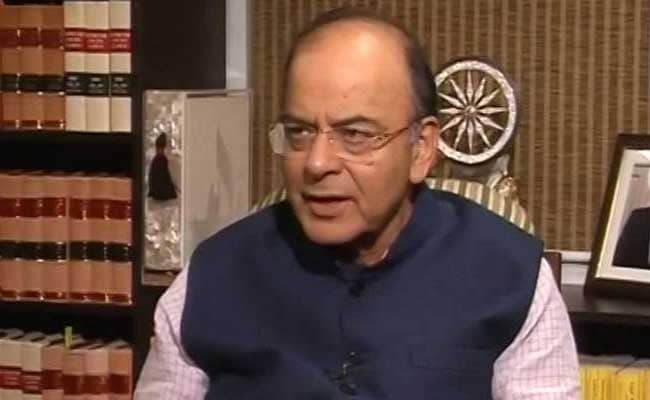
A panel, headed by Arun Jaitley, is considering converting 44 labour laws into 4 simplified codes
New Delhi:
NITI Aayog has pressed for 'substantive' reforms in labour laws to take the country out of the current low-productivity and low-wage jobs situation. It has also said that unifying the existing large number of labour laws into four codes without reforming them will serve little purpose.
A panel, headed by Finance Minister Arun Jaitley, is mulling converting 44 labour laws into four simplified codes. They relate to industrial relations, wages, social security and safety. "These (labour) reforms must begin as soon as possible even though their completion may take some years," said the government's thank tank in its 3-year draft action agenda.
"Unless, we bring about substantive change either by amending the existing laws or rewriting them afresh, we can not expect to change the current situation where low productivity and low-wage jobs dominate the landscape," the draft action agenda stated.
Noting that overly high levels of protection discourage employers to hire workers on a regular basis, it said that in order to "incentivise entrepreneurs to accelerate creation of regular salaried jobs, greater flexibility in labour law is required".
In the organised sector, the draft action agenda pointed out that entrepreneurs choose to stay away from labour-intensive industries and opt for highly capital or skilled labour-intensive technologies in the industries that they enter.
It also said that any enterprise which is less than five years old, with less than Rs 25 crore turnover, may be permitted to declare itself a start up, with no subsidies in any form provided to it.
This would ease up the burden of compliance of vast array of labour laws on the enterprise and pave the way for greater creation of jobs, the draft action agenda noted.
A panel, headed by Finance Minister Arun Jaitley, is mulling converting 44 labour laws into four simplified codes. They relate to industrial relations, wages, social security and safety. "These (labour) reforms must begin as soon as possible even though their completion may take some years," said the government's thank tank in its 3-year draft action agenda.
"Unless, we bring about substantive change either by amending the existing laws or rewriting them afresh, we can not expect to change the current situation where low productivity and low-wage jobs dominate the landscape," the draft action agenda stated.
Noting that overly high levels of protection discourage employers to hire workers on a regular basis, it said that in order to "incentivise entrepreneurs to accelerate creation of regular salaried jobs, greater flexibility in labour law is required".
In the organised sector, the draft action agenda pointed out that entrepreneurs choose to stay away from labour-intensive industries and opt for highly capital or skilled labour-intensive technologies in the industries that they enter.
It also said that any enterprise which is less than five years old, with less than Rs 25 crore turnover, may be permitted to declare itself a start up, with no subsidies in any form provided to it.
This would ease up the burden of compliance of vast array of labour laws on the enterprise and pave the way for greater creation of jobs, the draft action agenda noted.
Track Latest News Live on NDTV.com and get news updates from India and around the world

